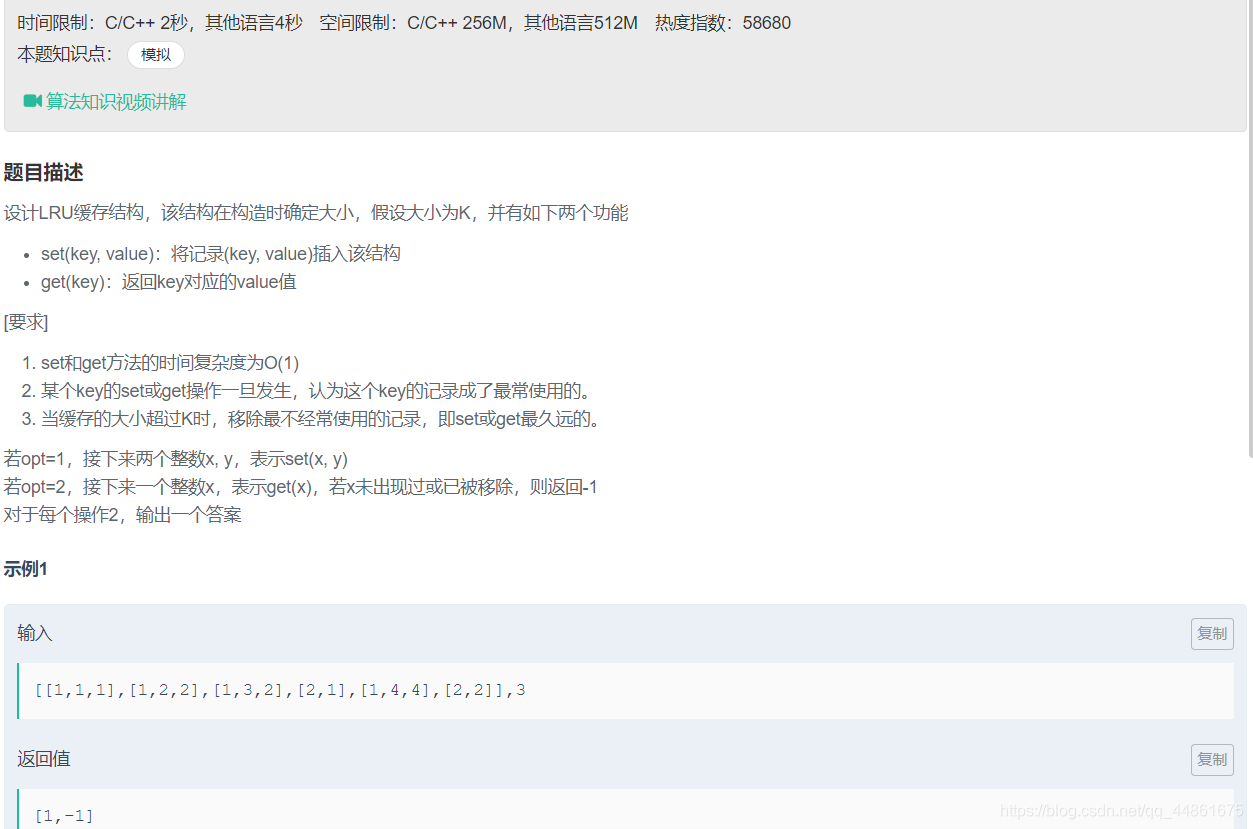Title description
About LRU algorithm and LFU algorithm:
Know: LRU cache structure

Solution
Use the built-in data: LinkedHashMap, which consists of a hashmap and a linked list, and the linked list is responsible for maintaining the most frequently used and least used data. The linked list is a doubly linked list, and the head node and tail node can be quickly removed. At the same time, the linked list must also store the key-val, so that when deleting it, the key of the deleted node is obtained, and the key is removed from the map.
import java.util.*;
public class Solution {
/**
* lru design
* @param operators int整型二维数组 the ops
* @param k int整型 the k
* @return int整型一维数组
*/
public int[] LRU (int[][] operators, int k) {
// write code here
LinkedHashMap<Integer,Integer> lruMap = new LinkedHashMap<Integer,Integer>();
ArrayList<Integer> result = new ArrayList();
for(int[] opat:operators){
int key = opat[1];
switch(opat[0]){
case 1:
int value = opat[2];
if(lruMap.size()<k){
lruMap.put(key,value);
}else{
Iterator ot = lruMap.keySet().iterator();
lruMap.remove(ot.next());//移除最不长使用的
lruMap.put(key,value);//添加,头插法
}
break;
case 2:
if(lruMap.containsKey(key)){
int val = lruMap.get(key);
result.add(val);
lruMap.remove(key);//因为这个时候key使用了,变为最常使用了
lruMap.put(key,val);//添加到头
}else{
result.add(-1);
}
break;
default:
}
}
int[] resultArr = new int[result.size()];
int i=0;
for(int a:result){
resultArr[i++]=a;
}
return resultArr;
}
}